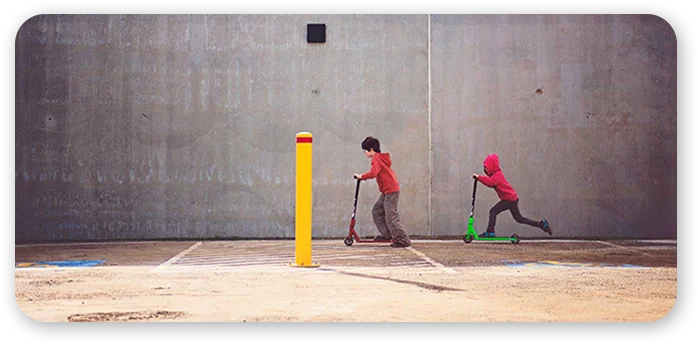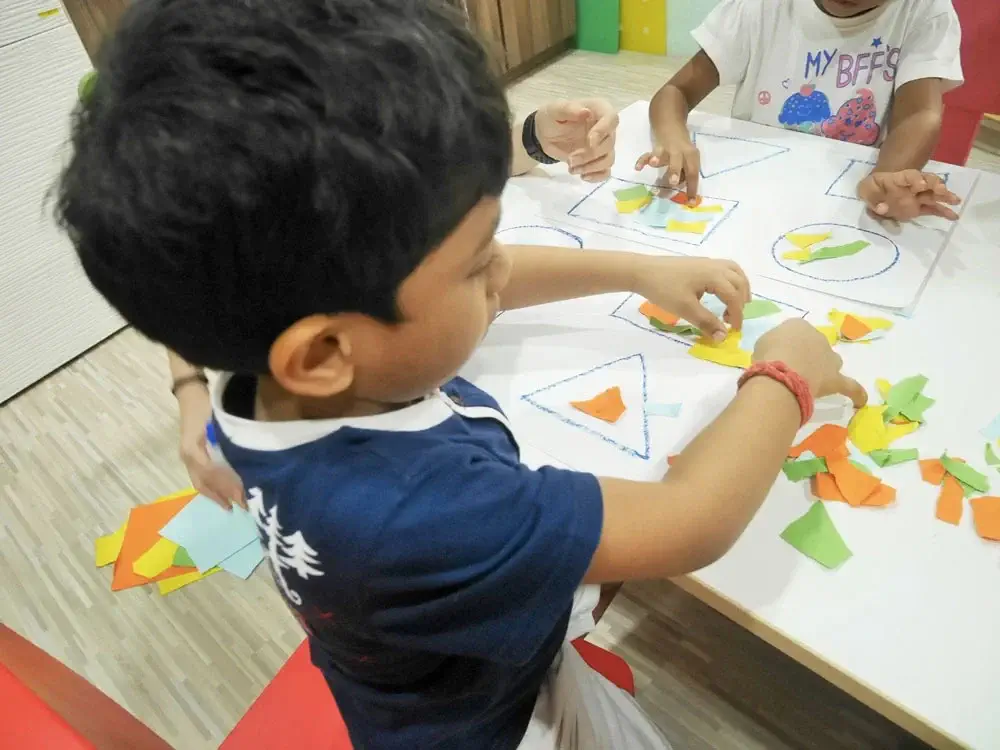Singapore Brain Development Centre
Our Location
1 GOLDHILL PLAZA #01-11 S(308899)
Autism Therapy For Children In Singapore

SCHEDULE A COMPLIMENTARY CONSULTATION
AUTISM IN CHILDREN & OTHER SYNDROMES
Improve the quality of your child’s life with the right treatment

Autism Spectrum Disorder (ASD) is a prevalent condition in Singapore, with a higher
incidence rate compared to the global average. Children with ASD may experience
difficulties in social interaction, communication, and display atypical behaviors and
interests. The alarming statistics emphasize the need for early intervention, such as
an autism screening test, and appropriate therapy to address these challenges and
improve the quality of life for individuals with ASD.
Our approach involves recommending tailored therapy and training programs based on the severity of the child’s case and their specific challenges. Speech training may be recommended to enhance communication skills, while Sensory Integration can address sensory and motor difficulties. Brain training may help enhance cognitive skills such as attention span, auditory and visual processing, memory, and logic and reasoning.
By providing the right therapy and intervention programs, we aim to alleviate the symptoms of Autism and support individuals with ASD in their development and daily functioning. Our goal is to enhance their overall well-being and help them reach their full potential.
Understanding Autism
Autism Spectrum Disorder (ASD) is a complex neurodevelopmental condition that affects social interaction, communication, and behavior. Children with ASD may experience difficulties in various aspects of their lives, including social skills, empathy, and communication. They may also exhibit repetitive behaviors and have specific interests or routines. The symptoms and severity of ASD can vary widely among individuals, making it challenging to understand and address effectively. An autism screening test in Singapore can help detect signs of ASD, leading to timely interventions and better outcomes for affected children.

What to Look Out For?
The signs and symptoms of Autism Spectrum Disorders can vary greatly among individuals. While some infants may exhibit early signs, others may not show noticeable symptoms until they are around 2 or 3 years old. As a parent, it is important to watch for the following signs and seek professional evaluation if you have concerns about your child’s development:
6 months
- No or limited eye contact
- No sign of warmth with big similes and other engaging expressions
9 months
- Little or no sharing of sounds, smiles, and facial expressions
12 months
- Little or no babbling
- Showing little or no gestures like pointing, reaching or waving
- Failure to respond to names
16 months
- Uttering a very few or no words
24 months
- Uttering limited or no phrases contain two words except imitating or repeating
And at any other age
- Losing previously acquired social and communicating skills
- Avoiding eye contact
- Persistent preference to stay alone
- Not understanding the feelings of others
- Oblivious of others
- Problems in expressing own feeling
- Restricted interest
- Delayed and slow language development
- Repeating the same words or phrases persistently
- Laughing or crying with no apparent reason
- Resisting minor changes in routine and environment
- Repetitive flapping, rocking, or spinning
- Showing unusual and vehement reactions to colors, light, smells, sounds, tastes, and textures
If your child exhibits any of the signs mentioned above, it is important to consider seeking professional evaluation as they may be at risk for Autism Spectrum Disorder. At Singapore Brain Development Centre, our experienced therapists can provide a comprehensive evaluation to assess your child’s condition.

How We Can Help
Early detection and intervention programs have been shown to have positive long-term outcomes for individuals with Autism and other developmental syndromes. While Autism is a lifelong condition, appropriate support, training and therapy from a young age can help individuals develop the necessary skills to lead productive lives. Early intervention, coupled with the right therapy, can even enable individuals with mild symptoms to effectively manage their challenges.
It is important to note that there is no medication that can cure Autism. Training and therapy are the key components for improving the conditions of individuals with Autism and other syndromes. Autism therapy and treatment in Singapore focuses on cognitive and behavioral needs, which are critical for enhancing the quality of life.
By bridging the gap and enhancing these critical skills, our training programs at Singapore Brain Development Centre can make a tremendous difference in the lives of individuals with Autism and other syndromes. Our aim is to provide a more enjoyable and productive life experience for both individuals and their families.
Have a read through our Parent Guide to Autism Therapy for children here too.

Essential parent involvement
Parental support plays a crucial role in helping children overcome the challenges associated with autism. It is important for parents to provide constant presence, establish consistent schedules, and reward positive behaviors. Creating a safe and nurturing environment, being attentive to the child’s sensitivities, and understanding non-verbal cues can also contribute to managing emotional outbursts effectively. With the right autism treatment, parents can actively participate in their child’s developmental journey and improve the outcomes.
Frequently Asked Questions About Autism in Children
Autism Spectrum Disorder (ASD) is a neurological and developmental condition that impacts social interaction, communication, and behavior. Individuals with ASD experience varying levels of challenges in these areas, depending on the severity of their condition.
Symptoms of autism can be identified in toddlers as early as 12 to 24 months. Some common signs of autism in children include:
- Avoiding eye contact
- Repetitive Movements (flapping their hands, rocking their body, twirling their hands)
- Unresponsive to their name
- Obsessive interests
- Difficulty understanding emotions
- Repeating phrases or babbling
- Lack of language or social skills
Early intervention programs play a crucial role in supporting children with autism by providing a range of treatments and therapies. Sensory Integration & Motor Skills Therapy and DIR Floortime are recommended approaches that aim to enhance cognitive abilities, address communication challenges, and promote participation in daily activities and school. These treatment plans are designed to minimise the symptoms associated with autism and support the overall development and functioning of children with autism.
A Promising Solution
Singapore Brain Centre is dedicated to supporting children with ADHD by offering evidence-based interventions and personalised support. We aim to provide realistic hope and tangible results, helping children overcome challenges, develop their strengths, and lead fulfilling lives.
Here are some key areas our program offers to lessen the symptoms of ASD:
- Develop self-regulation skills
- Increase awareness and self-control
- Better process sensory inputs
- Develop speech, language and communication
Schedule a free consultation for your child, and our consultant will work out the best solution from our wide range of intervention therapies and programs offered at Singapore Brain Development Centre.
